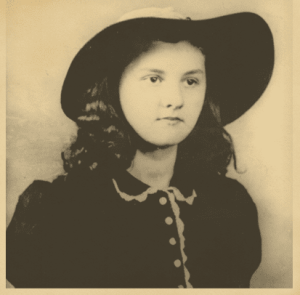Archive, Articles
Eternal Word in Time
For Easter, Die Tagespost published a 12-page supplement to celebrate the twenty-fifth anniversary of the German branch of EWTN. Having been asked to contribute to the supplement, I wrote a brief piece you can find here. Below is an English version.
The omnipresence of the media has long been a feature of western society. We have got used to the absence of eye contact in metros and trains. Passengers’ gaze is fixed to screens that provide customised information, entertainment, or titillation.
On this status quo endless counsels have been given. We are faced with a phenomenon of civilisation. We must deal with it somehow. It will not go away unless someone somewhere pulls the plug and leaves us disconnected, distraught.
These days, though, the stakes are changing. Advances in artificial, inhuman intelligence ensure that media content may have no sentient or pondered origin. We are, more or less wittingly, the audience of algorithmically ordered 0s and 1s.
The Italian paper Il Foglio recently launched a trial AI supplement, all the articles for which were written by machines, sometimes with engaging (virtual) self-irony. The trend will spread. It is fascinating in a way. We watch such prodigies amazed, the way we watched the first moon-landing, microwave, email, and chauffeurless bus.
But what will happen to discourse once it is surrendered to automation?
On the one hand we have computing engines ready to spew out news real or fake, not to mention Zauberberg-like novels, at the merest murmur to Alexa or one of her pliant sisters; on the other hand we have software that will read these texts on our behalf and summarise them in tin-voiced audio messages.
And we, what shall we do meanwhile? Spend our days in gormless contentment drinking Piña Coladas on the beach? Hardly. More probably we shall sink further into the weary, ineffable loneliness that constitutes the defining epidemic of our time.
The Christian proposition is founded on the claim that an Eternal Word, the metaphysical and intentional source of all there is, engages with the world and speaks to it for its flourishing’s sake; and that this Word, at a given point in time, entered history to renew human nature from within, repairing malfunction, so to speak, by re-installing the operating system. This intervention let us redefine relationships, acquire new notions of purposefulness, and be relieved of the cyclic vengeance to which history shows mankind, left to its devices, congenitally prone. The Word let us form a society worthy of that name.
Each generation has need to hear that Word resound afresh, of course. But our time’s need is exceptional, posed as we are on the brink of self-destruction, disposing of unprecedented means to effect it.
To be instruments by which the eternal, personal Word through ever more dehumanised media may resound in its perennial, creative, unprogrammable newness is an urgent apostolic task.
Blessed are those who undertake it.
This young lady, born as Rita Rizzo on April 20, 1923, would turn into the redoubtable Mother Angelica, foundress of the Eternal Word Television Network.

